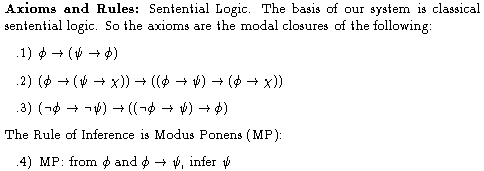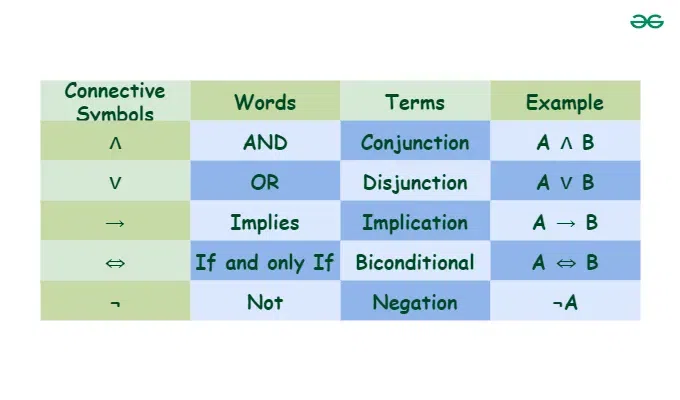"Sentential logic, also known as propositional logic or statement logic, is a formal system of logic that studies how to combine and modify statements to create more complex statements. It's used to express ideas and prove things."
This is the kind of logic that is used in computer programming. It is the kind of logic used in complex philosophical and scientific formulas. Engineers use it often.
I will not be focusing on this type of logic and reasoning, but will rather deal with the more traditional and less complex logical fallacies. One of those is called "syllogistic logic." Again, AI Overiew says:
"Syllogistic logic is a formal system of logic that uses deductive reasoning to draw conclusions from two or more premises. It was developed by Aristotle in his Prior Analytics around 350 BCE."
How it works
A syllogism is made up of three parts: a major premise, a minor premise, and a conclusion.
The major premise is a general statement, and the minor premise is a specific statement.
The conclusion is a specific statement that follows logically from the two premises.
The conclusion must be true if the premises are true.
Example
"All mammals are animals. Camels are mammals. Therefore, camels are animals"
I also took the LSAT exam for entrance into law school. I took it twice and scored just below average. It also tested one's skills in logic, the same kind one sees in puzzle books that have all kinds of logical games and puzzles. In a nutshell, logic studies can become quite complicated. In these cases they go far beyond what the normal person concerns himself with on a regular basis.
I use syllogistic logic much more in my writings and in debate. It is much simpler. However, it can be abused and I have seen it abused in many debates I have had. One of the chief errors in syllogistic logic is what is called the error of equivocation. Again, AI says this about it:
"The error of equivocation is a logical fallacy that occurs when a word or phrase is used with multiple meanings in an argument. This can make the conclusion seem to not follow from the premises."
It is also seen where another term is used in one of the premises that is not the same one used in the other premise. When this is done the other term is given as a synonym for the other term but may or may not be such. Valid syllogisms must keep the same terms and not use other terms that are judged to be equivocal. Again, AI Overview says:
"The fallacy of equivocation occurs when a key term or phrase in an argument is used in an ambiguous way, with one meaning in one portion of the argument and then another meaning in another portion of the argument."
I had a double major in college (which required taking more classes and getting more credits). One was in Sociology and the Other in Speech Communication. In the latter major I was on the debate team and took classes in "Argumentation" and in "Persuasion," and in "Rhetoric," and in basic speech. I had a class called "History and Criticism of American Public Address" too in which we had to analyze and critique some of the most famous speeches or orations. Further, these areas of study I have continued to investigate in my private studies. I have had a dozen or so oral debates with brethren of other denominations (mostly from the "Church of Christ" sect). I have also had many on line debates and discussions, as well as some that are private. In these debates I am often engaged in pointing out where my opponent is making invalid or false reasonings or logic. Bob L. Ross, in his private correspondence with the Hardshells (which I have in my possession), told one elder that he needed to study and know the basic common fallacies that many use (for this Hardshell, like other Hardshells, often put forth invalid arguments). In this study we will focus on some of the more common fallacies. We will begin by citing from an Internet article titled "15 Logical Fallacies to Know, With Definitions and Examples" (See here). That article begins by saying (emphasis mine):
"You’ve seen them on social media. You’ve heard them in movie dialogue. Heck, you’ve probably even used them yourself.
They’re logical fallacies, those not-quite logically sound statements that might seem solid at first glance, but crumble the moment you give them a second thought.
Logical fallacies are everywhere. Once you know how to recognize them, you’ll notice just how common they are—and how they can undermine the point their writer is attempting to make. Being able to identify logical fallacies in others’ writing as well as in your own will make you a more critical thinker, which in turn will make you a stronger writer and reader."
Being able to recognize logical fallacies or false reasoning is like being able to recognize incorrect grammar. For myself, correct grammar has always been of great importance to me, and has almost become an obsession. When I listen to people talk, even well educated people in news media, government, or by people such as lawyers, people who should know better, I hear such. Even now, I catch myself having used improper grammar in an article when going over the draft and must correct it. I hear educated people all the time speak improperly in saying "He is like me," which is a very common error. The correct grammar is "He is like I (am)." The former sentence, if we supply what is implied but not stated, would read like this - "he is like me is." Another common grammatical error is seen where antecedents of nouns (subjects) and pronouns do not agree in number. People will speak of a single person, and then in the same sentence refer to that single person in the plural number. An example would be - "A Christian praises God, and they do it joyfully." Do you see the error? "A Christian" is singular. "They" is plural. To be correct the sentence would need to change something. They can replace "A Christian" with "Christians" or they can replace "they" with "he" or "she" or "he or she." So, it is true, as the above writer says, that once you become knowledgeable of the most commonly used logical fallacies you will recognize them quickly and easily. The same with knowing good grammar.
The same article says further:
"Greek philosopher Aristotle also wrote about logical fallacies. He identified thirteen fallacies, divided into verbal and material fallacies, in his work Sophistical Refutations. By Aristotle’s definition, a verbal fallacy is one where the language used is ambiguous or incorrect, and a material fallacy is an argument that involves faulty or flawed reasoning."
Logical fallacies involve errors in reasoning. It deals with contradictions. Let us notice the few times the word contradiction is used in scripture.
"But when the Jews saw the multitudes, they were filled with envy, and spake against those things which were spoken by Paul, contradicting (antilegō) and blaspheming." (Acts 13: 45 kjv)
Here contradiction involves opposing and contradicting Paul and not the idea of a person opposing himself by saying opposite things. (See also Heb. 7: 7; 12: 3) The Greek word denotes speaking the opposite of what Paul was saying. Two debaters on each side of a question are contradicting each other. What we are concerned about is how people contradict themselves, how they say one thing that is the opposite of what they said at another time. It is a case where perhaps people speak, as the Indians say, "with forked tongue." Or, where people "speak out of both sides of their mouths." The latter case is seen in these words of the apostle:
"In meekness instructing those that oppose themselves (antidiatithēmi); if God peradventure will give them repentance to the acknowledging of the truth." (II Tim. 2: 25 kjv)
Of course, they not only contradict themselves, but contradict what the bible says. So, contradicting the truth is similar to what it means to "gainsay." On the words of Isaiah 1: 18 AI Overview says:
"Come let us reason together" is a phrase primarily from the Bible, specifically Isaiah 1:18, which essentially means to engage in a calm, rational discussion or debate, inviting someone to consider a perspective with logic and understanding, rather than just accepting something blindly; it's a call to thoughtfully analyze a situation together."
Jesus said "the scripture cannot be broken" (John 10: 35 kjv). Why? Because scripture is truth and truth cannot be broken, meaning it cannot be "made null and void; whatever that says is true, there is no contradicting it, or objecting to it." (Gill's commentary) There is no just or legitimate contradiction of it nor any contradictions in it, although on first glance that might not appear to be so.
The same article says further:
"But keep in mind that they can and often do appear in academic writing, especially in the kinds of writing where the author has to defend a position, like argumentative essays and persuasive writing. They can even show up in expository writing."
True, as I stated earlier. Even learned people often not only use incorrect grammar but incorrect or invalid arguments. It is these that we will be examining in this series.
The same article says further:
"Our brains aren’t perfect, and even smart people can fall prey to making logically inconsistent statements and arguments."
This being so, we need special attention be given to such a study as this.
The same article says further:
"Usually, people make these kinds of statements because they haven’t taken the time to think through them logically, not because they intend to make flawed arguments. But in some cases, the writer or speaker does intend to make a flawed argument, usually in an attempt to sway readers’ opinions or make their opposition look worse."
Here the "Sophists" are alluded to or are a good example of people using flawed logic to sway people's opinions and beliefs. When I was on the CEDA debate circuit in college, we had a proposition that every college debated for the semester and when you went into a debate round with another team from another school, you might go in being in the affirmative or in the negative. You had to learn how to win a debate, truth being not important. This is what the Sophists believe. If you want to get ahead in life, in your job or profession, then you must learn how to argue and win the argument, right or wrong. This is why good debaters begin with knowing well who their audience is. How you would preach to the choir or to your supporters might be different than how you would dialogue with opposers. One of the other important aspects of CEDA debate is the time granted for a debater to ask questions of the opposition in what is called "cross examination." We also see this in courtroom debates between the prosecution and the defense. The main point is this; no one should debate like Sophists. Truth is what should be the goal of honest debaters and not personal victory. Sadly, this is not the kind of debate we see today among politicians and by those in the media.
The same article says further:
"The best way to avoid making logical fallacies in your own writing is to familiarize yourself with them and learn how to recognize them. That way, they’ll stick out to you when you’re reading your first draft, and you’ll see exactly where your writing needs thoughtful revision."
This is what I hope will be the outcome of this short series.


No comments:
Post a Comment